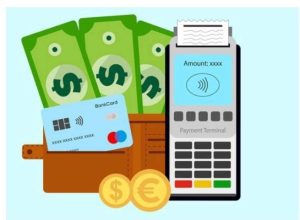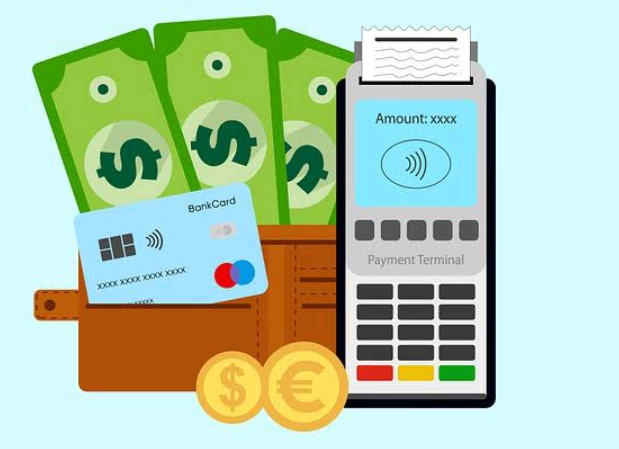Conducting your business, or sending and receiving money internationally is no longer a luxury but a necessity. Big thanks to the internet, telecommunications and globalization. And why not? If your needs are met far away on another continent or country and border issues are not a problem, go ahead. In spite of the demeaning actions of hackers and scammers, there are laudable tools available to conduct safe international transactions in Nigeria. And thus safeguard your money.


So what options do we have to conduct easy, safe international transactions in Nigeria this present day? We invite you to explore a number of options to do so.
Also Read- 10 Important Tips for Freelancers in Nigeria
International Transactions in Nigeria: The Challenge of CBN Policy
The past two to three decades thereabout witnessed the widespread use of the internet by Nigerians. They now do more of international trading and freelancing work. With it came a number of powerful online money transfer services, and Nigerian banks helped out indeed. Unfortunately, the Central Bank of Nigeria (CBN) in 2020 mandated that only US Dollar remittances should be allowed into the country thenceforth. This policy severely limited the use of the Naira elsewhere outside Nigeria for many years.
A further restriction saw Nigerian banks barring the use of Naira debit (and credit) cards for international transactions in 2022. All these moves were in a bid to control the falling value of the Naira against the US Dollar. But it badly affected Nigerians who needed to access their earnings in foreign currency (or exchange them from foreign to local currency). Fortunately, the new CBN regulations in 2024 have increased the value of the Naira, and Naira remittances are now allowed.
Some new and existing fintech companies have long risen to the challenge. While some Nigerian banks are a bit hesitant, international money transfer and currency exchange services are being handled more effectively by emerging fintechs. At the moment, we can assure you that the following easy and safe channels are available for international money transactions in Nigeria:
- Virtual Dollar cards
- Bank wire transfer
- Private money transfer companies
- Mobile wallets
- Domiciliary accounts
A brief discussion on how these channels operate at present would prove useful.
Virtual Dollar cards
Virtual Dollar cards have emerged as popular online payment options for business owners and freelancers in Nigerians for a while now. In the absence of a physical US Dollar card, certain fintech companies provide a digital version of a US Dollar card. It has made international transactions easier to handle. They have become more useful since the ban on using Naira debit cards for international transactions took effect.
As such, you can load funds in Naira from your local account into a virtual US Dollar card. Thereafter you may use it to pay in US Dollars, for goods or services on e-commerce websites across the world. Such websites as Spotify, Alibaba, Netflix, Amazon, Facebook ads and so on, easily accept them.
Examples of virtual US Dollar cards currently in common use in Nigeria include the following:
Alat by Wema, Grey, Klasha, Fundall, Chipper cash, Changera, Cashbuddy, Wallets Africa, Geegpay, Payoneer, and PayDay.
Bank Wire transfer
A safe, age-old method of sending and receiving money between Nigeria and other nations is by wire transfer (or bank wire). This is a direct bank deposit of money from a sender’s account to yours (or vice versa). However, wire transfer often uses the SWIFT Network, and bank charges can be expensive. Also, there are often other intermediary banks that facilitate the funds transfer to local banks, hence the high cost. Nevertheless, the majority of banks still use this method. And of course the fintech companies have joined the race, choosing to offer cheaper international money transfer rates.
Private Money Transfer Companies (Mobile Wallets)
More and more online banks (or fintechs) now provide US Dollar and multi-currency accounts to Nigerians. That way, you can send and receive funds in US Dollars, British Pounds, Euros and other such foreign currency directly in that account. International transactions have become easier that way. Many of these fintechs will do the currency conversion between your local Naira and the foreign currency for you.
These fintechs typically operate as digital or mobile wallets, in which all your details are secured by encryption. They send and receive funds on your behalf as digital cash, and connect to your local bank account. We have common examples like Payoneer, Xoom, Skrill, Kyshi, Wallets Africa, MFS Africa, Paystack, Fincra, Instarem, and TransferWise.
There are also reliable online currency exchanges you can use to exchange foreign currency for the Naira. They connect to digital wallets and your local account, thereby serving as intermediary exchanges. These options are useful if you want to obtain a better exchange rate than those offered by banks. Examples include Grey, Changera, NairaEX, KiaKia FX, NairaCo, Macs and Express, Truexgold, AFEX Nigeria and many more. Ensure you make your findings beforehand to know the credibility score of such an exchange before patronizing it.
Physical Cash Transfer/Pickup Services
Other well-known fintech companies collaborate with banks in Nigeria to send and receive money from abroad as physical cash (or directly into your local account). The sent money would usually be received in that foreign currency (e.g. Euro, US Dollar, British Pound). They include the following:
Western Union, MoneyGram, Remitly, WorldRemit, Azimo, RIA, Chipper cash, and Small World.
You will need to confirm with your bank to find out which of these money transfer services they make use of. And how they operate as well.
Domiciliary accounts
Virtually every bank in Nigeria provides domiciliary accounts for its customers. They have been in use for a long time, and are safe and reliable. A domiciliary account allows the account holder to send and receive payments (and do transactions) using a foreign currency. In virtually all Nigerian banks, it involves the US Dollar; but may also be Euros or British pounds. You can withdraw your funds as cash (in foreign currency) at any time. Between when the sender deposits the funds and the recipient gets it, it should take no more than a maximum of 72 hours.
Do you find this article useful? Let us know in the comments section.








